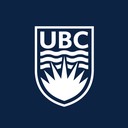Software Engineer, Camera Network
Science Building (SCI), Canada
University of British Columbia
The University of British Columbia is a global centre for research and teaching, consistently ranked among the top 20 public universities in the world.Job Category
M&P - AAPSJob Profile
AAPS Salaried - Scientific Eng., Level BJob Title
Software Engineer, Camera NetworkDepartment
UBCO | Research Support | Bourbonnais | Department of Earth, Environmental and Geographic Science | Irving K. Barber Faculty of ScienceCompensation Range
$6,747.50 - $9,701.42 CAD MonthlyThe Compensation Range is the span between the minimum and maximum base salary for a position. The midpoint of the range is approximately halfway between the minimum and the maximum and represents an employee that possesses full job knowledge, qualifications and experience for the position. In the normal course, employees will be hired, transferred or promoted between the minimum and midpoint of the salary range for a job.
Posting End Date
June 8, 2025Note: Applications will be accepted until 11:59 PM on the Posting End Date.
Job End Date
Jun 14, 2027At UBC, we believe that attracting and sustaining a diverse workforce is key to the successful pursuit of excellence in research, innovation, and learning for all faculty, staff and students. Our commitment to employment equity helps achieve inclusion and fairness, brings rich diversity to UBC as a workplace, and creates the necessary conditions for a rewarding career.
Job Summary
The Fire Ecology and Remote Sensing Lab at the University of British Columbia – Okanagan (UBCO) is seeking a motivated software engineer to help lead the development of a robust, camera-based system for wildfire detection and monitoring, in partnership with the BC Wildfire Service. This role focuses on building software for a distributed network of pan-tilt-zoom (PTZ) cameras connected via cellular and satellite networks, deployed in remote areas across British Columbia.
You will be responsible for integrating camera hardware, managing data transmission pipelines, and building automated systems to detect and classify wildfire-related events. The successful candidate will collaborate closely with a team of data scientists at UBCO and contribute to a critical environmental and public safety initiative with tangible impacts across British Columbia.
Organizational Status
This position reports to Dr. Mathieu Bourbonnais in the Fire Ecology and Remote Sensing Lab within the Department of Earth and Environmental Sciences, Irving K. Barber Faculty of Science.
Work Performed
- Coordinate and help lead the research and development of software and hardware required to control and interface with PTZ cameras.
- Build and optimize image and video pipelines for acquisition, processing, and transmission over 5G/LTE and satellite networks.
- Help lead and support research and development of algorithms for automated wildfire detection, tracking, and alerting systems using real-time or near-real-time data.
- Integrate systems with UBCO’s backend infrastructure for storage, analytics, and API services.
- Collate and analyze system and experimental data to evaluate and improve system performance with partners.
- Develop a web-based dashboard to stream live camera feeds and manage access control for sensitive data.
- Write reliable, testable, and maintainable code for deployment in both edge and cloud environments.
- Collaborate with data scientists, hardware engineers, wildfire professionals, First Nations, telecom partners, and community stakeholders.
- Ensure the reliability and uptime of field-deployed systems in rugged environments.
- Develop system documentation, details on design and specifications for equipment, and provide user training and support.
- Provide technical assistance and advice to faculty and students involved in the project.
- Make technical decisions and recommendations on all aspects of the project.
Consequence of Error/Judgement
This role requires precision and sound judgment. Errors may delay project outcomes or compromise research quality. Attention to detail and a professional approach are essential.
Supervision Received
The Software Engineer will work independently within project objectives. Informed technical guidance is available if required with Dr. Bourbonnais.
Supervision Given
May provide guidance and direction to other technical staff involved in developing, installing, or maintaining system components.
Minimum Qualifications
- Undergraduate degree in Applied Science, Engineering, or a related discipline.
- Minimum of three years of related experience, or the equivalent combination of education or experience.
- Proficiency in Python, with experience in one or more of: C++, JavaScript, or Bash.
- Experience working with IP and PTZ cameras, including protocols such as ONVIF, RTSP, and HTTP APIs.
- Proficiency in video/image processing using tools like OpenCV or FFmpeg.
- Strong experience with Linux, including scripting and remote deployment to edge devices (e.g., Raspberry Pi, NVIDIA Jetson).
- Understanding of network protocols (TCP/IP, UDP, HTTP, RTSP) and experience optimizing transmission in bandwidth-limited environments.
- Familiarity with cellular (4G/5G) and satellite (e.g., Iridium, Starlink) communication systems.
- Comfortable working with asynchronous systems, queuing mechanisms, and handling intermittent connectivity.
- Experience in web development and/or GUI design.
- Experience building ETL pipelines and applying computer vision techniques.
- Proven ability to integrate APIs and external services.
- Commitment to inclusive collaboration and respect for diverse perspectives.
- Demonstrated commitment to equity, diversity, and inclusion (EDI) through ongoing learning and practice.
- Willingness to respect diverse perspectives, including perspectives in conflict with one’s own
- Demonstrates a commitment to enhancing one’s own awareness, knowledge, and skills related to equity, diversity, and inclusion
Preferred Qualifications
- Master’s degree in Computer Science, Software Engineering, or a related field.
- Experience with edge computing and deployment on remote or resource-limited devices.
- Knowledge of wildfire behavior and environmental monitoring.
- Experience with AI and machine learning tools to support automated detection and analysis.
- Familiarity with cloud platforms (AWS, GCP, Azure) and containerization tools like Docker.
- Exposure to GIS, remote sensing, or wildfire monitoring datasets.
- Familiarity with geospatial data formats (GeoJSON, KML, shapefiles).
Tags: APIs AWS Azure CAD Computer Science Computer Vision Docker Engineering ETL GCP JavaScript Linux Machine Learning Nvidia Jetson OpenCV Pipelines Python Research
Perks/benefits: Career development Equity / stock options Team events
More jobs like this
Explore more career opportunities
Find even more open roles below ordered by popularity of job title or skills/products/technologies used.
